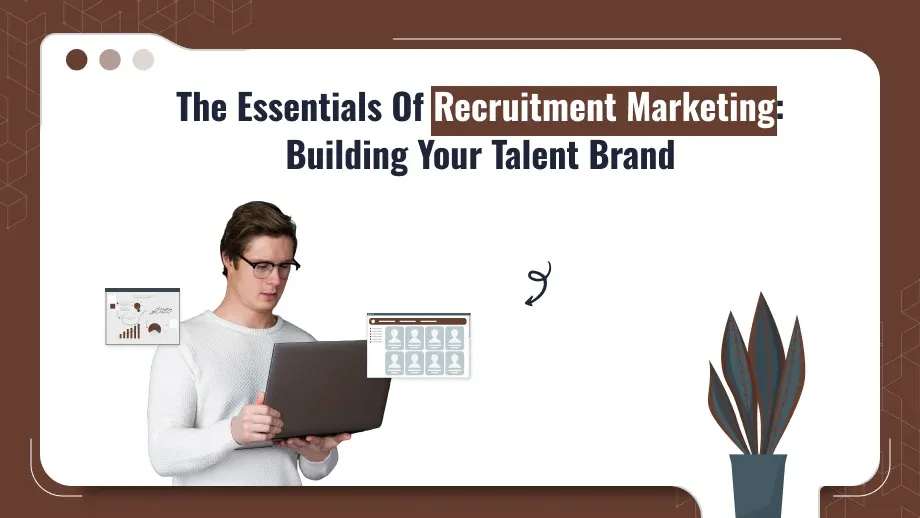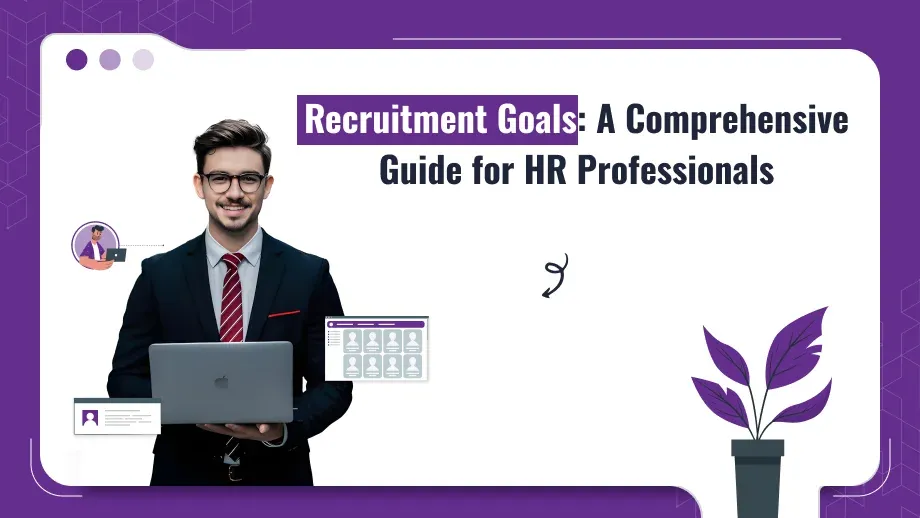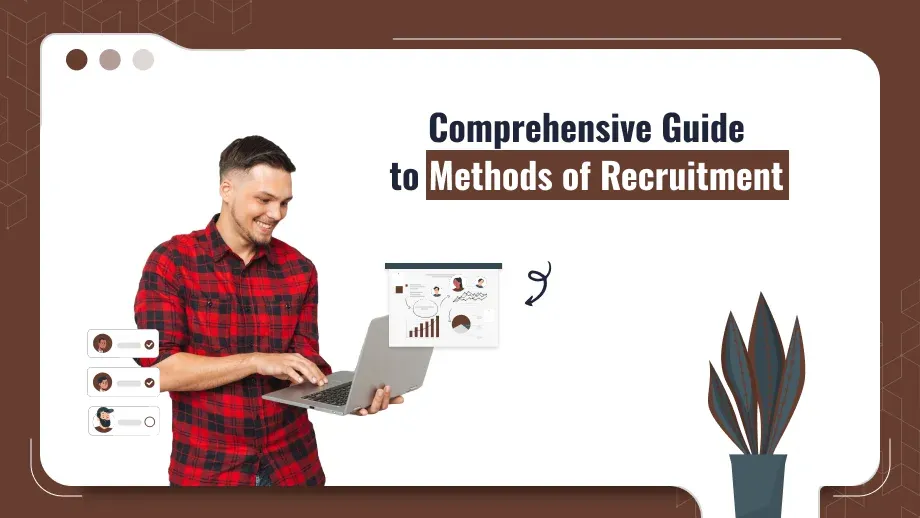
An employment marketing should define you and attract the best people to your organization for you to be effective in the job market today. It helps streamline hiring while targeting the right person through its recruitment database. This article goes further into recruitment marketing. What is a recruitment database? Best practices? How to navigate the recruitment landscape?
What is Recruitment Marketing?
Recruitment marketing is the strategies and tactics used to attract, engage, and nurture potential candidates throughout the hiring process. Whereas traditional recruitment often appears to be reactionary, this one is proactive. In other words, it’s actually “going out” and using various channels and tools in the employer brand that resonates with job seekers.
Importance of a Recruitment Database
Centralized Candidate Information
A recruitment database is a central store for all candidate information. This encompasses resumes, contact details, interview notes, and communication history. All this information directly under the HR teams’ disposal enables them to handle and evaluate a candidate in a better way. No more digging through several sources or documents, recruiters can find the information needed in a split second and even save time and resources.
Better Candidate Engagement
A recruitment database allows for better candidate engagement throughout the hiring process. By tracking interactions and touchpoints with candidates organizations can personalize their communication. This means a better candidate experience as candidates feel valued and informed. For example, recruiters can follow up with candidates who have expressed interest in specific roles or update them on their application status. This is key in a competitive recruitment market where top talent often has multiple opportunities.
Data-Driven Decision Making
Using a recruitment database means data-driven decision-making. By analyzing trends and metrics organizations can gain insight into their hiring practices. For example, recruits can send follow-ups to those applicants who have expressed interest in taking particular roles or the status of applications. In a competitive recruitment market, top talent often has several job opportunities.
Team Collaboration
A recruitment process tends to be a teamwork product. In most cases, this process involves more than one stakeholder: the human resources, hiring managers, and department heads, just to mention a few. A centralized database on recruitment allows for teamwork because every member of the team, human resources, and all, can access and update the candidate information. The result of such sharing includes putting all the parties on the same page hence benefiting the whole hiring process.
Candidate Sourcing
A robust recruitment database helps with network marketing recruiting by allowing organizations to have a pool of candidates for multiple roles. This is especially useful for companies that hire for the same roles. By keeping track of candidates who may not have been selected for previous roles virtual recruiter can tap into this talent pool for future roles and reduce the time and effort of sourcing new candidates.
Market Mapping
Effective market mapping in recruitment requires data on candidate skills, experiences, and market trends. A recruitment database allows organizations to track this information. By analyzing the profiles of candidates who have previously applied or been hired recruiters can better understand market trends and skill availability for future talent acquisition.
Compliance and Record Keeping
Compliance with hiring regulations and standards is very critical for any organization. The recruitment database facilitates all sorts of recruitment activities that are needed for audits and compliance checks. This systematic way causes no potential legal issues and ensures hiring practices at the organization meet the standardized requirements of the industry and a training and compliance culture in the organization.
Automation and Efficiency
Many new recruitment databases offer facilities for automating the process. For instance, it can automatically react to the response of e-mails, scheduling interviews, and tracking applicants. Thus, it helps in automating some parts of the hiring procedure and permits the recruiter to relieve himself from the burden of paperwork. This approach also enables HR teams to focus more strategically, develop relationships with candidates, and refine their recruitment strategy.
Recruitment Insights
A recruitment database gives you insights to determine your recruitment strategy. When tracking metrics such as time to fill, candidate source, and overall hiring success, organizations can inform appropriate decisions in making improvements to the hiring process. For example, if the data shows that some channels tend to source better-caliber candidates for marketing recruitment, then it is easy to reallocate more resources there.
Scalability for Future Growth
As organizations increase their sizes, so do their hiring needs. A properly structured recruitment database is scale-upable. You can manage more candidates through it and achieve a good management of roles. Whether you are hiring for a small start-up or a huge corporation, it means that with a good database, you can attend to the changes in recruitment demands while not having to compromise on quality.
Your Hiring Process Can Be Supercharged!
Engage top talent with effective recruitment marketing strategies and a powerful database.
Understanding the Target Audience
To optimize recruitment for marketing, you ought to understand who you are targeting. You can identify and segment candidate personas to suit the message you are going to communicate to different demographics. For example, a company doing network marketing recruitment will be different from one doing Venture capital recruiting.
Messaging
Meaning means adjusting some content and outreach strategies to speak to the right candidates. This is where a recruitment database comes in handy. Based on these, through past interactions and candidate preferences, you can craft messages resonant with your target audience and, therefore, increase your chances of attracting the right talent.
Building Candidate Personas
Recruitment marketing encompasses developing comprehensive candidate personas, encompassing what ideal candidates look like in terms of demographics, motivations, and challenges. Career development and prospects for growth remain a strategy in recruit marketing for fresh graduates, while stability and leadership prospects are the same for experienced professionals.
Benefits of Digital Recruitment Marketing
Digital recruitment has been altering how firms attract the best talent. Here are some benefits:
A Larger Reach: Organisations by resorting to digital channels can reach candidates from various geographical pockets. Social media and job boards have made it easy for organizations to connect with a wider universe than traditional tools.
Cost Effective: Digital marketing is a relatively lower cost per hire as compared to traditional recruitment methods. Targeted digital ads mean reaching a more specific audience and getting bang for your buck.
Data Driven Insights: With digital, companies can measure campaign performance so they can derive really valuable insights to optimize future activity. With a recruitment database, you know which sources will be good candidates and therefore allocate your budget better.
Real-Time Feedback: Digital platforms allow real-time feedback from candidates so you can test interest and adjust your messaging quickly.
Developed Employer Branding: Digital channels enable you to display more of your company culture, values, and unique selling points. All this content, from videos to blog posts, and employee testimonials may amplify your employer branding, attracting just the right candidate.
How to Create a Recruitment Marketing Plan
To create an effective recruitment strategy you will need to :
Define: Clearly define what you want to achieve with your recruitment marketing. What are your goals? Fill specific roles? Improve employer branding? Increase candidate engagement?
Target Audience: Who are the candidate personas you want to attract? Segmentation of your audience helps you gear yourself for different groups.
Employer Brand: Work on the employer value proposition that will differentiate you from the rest of the competition. Put on the face of your company culture, values, and missions.
Channels: Use social media, job boards, and career websites. Know where your target audience spends their time so you can reach out effectively.
Content: Share testimonials, employee stories, and insights into company culture. This content informs candidates about job openings but also builds the brand.
SEO: Optimize job posts and recruitment content for search engines.
Tools: Use Applicant Tracking Systems to simplify processes and increase efficiency.
Measure and Analyse: Periodically analyze your strategy and adapt it. Use your recruitment database to inform decisions and build better outcomes.
Feedback Loops: Seek out candidate feedback about their experience of the recruitment process. This will help you identify areas where you need to improve and enhance the candidate experience.
Talent Pool: Create a talent pool of potential candidates through newsletters and social media. This can be built over time, meaning when the roles are open, it is easy to fill them.
How to Create a Recruitment Marketing Strategy
Creating an effective recruitment marketing strategy requires creativity. Here are some ideas that may help:
Align with Business Objectives: Your recruitment strategy must align with the larger business objectives. Suppose your company is venturing into new markets, so you recruit from different skill sets.
Analytics: A recruitment database can give you all the knowledge to inform decisions and strategies. For example, for how many days a particular job post is performing better than another, thereby driving various sources for candidates.
Activate Employees: Activate current employees as major marketing agents. Create an employee referral program, which rewards employees for referring others to jobs in their network.
The Recruitment Marketing Funnel
Awareness: Attracting candidates through multiple channels and brand awareness. This involves social media advertising, content marketing, and employer branding.
Consideration: Engaging candidates and giving them valuable content to nurture their interest. This could be sharing insights into company culture or success stories from current employees.
Apply: Encourage candidates to apply by making the application process easy and user-friendly. An application platform linked to your recruitment database can increase conversion rates.
Hire: Get the best available talent and ensure they have the best onboarding process. A good hire will enhance your employer’s branding and make people want to share their experience.
Engage: Engage with those candidates who didn’t make it to your team as well, so that you can maintain a connection for future hiring requirements. Newsletters or updates about the company will ensure your brand remains on their top mind.
A recruitment database can support every stage of this funnel by giving you insight into candidate behavior and preferences. For instance, you can track engagement levels to when a candidate is more likely to apply.
Technology in Recruitment Marketing
Applicant Tracking Systems (ATS): Such systems streamline the application process so you can track candidates through the recruitment funnel. An applicant tracking system can also be integrated with your recruitment database for managing candidate information.
Recruitment Software in India: It will be quite easy to handle these regional-specific hiring processes if there is an in-country recruitment software. This local software knows about local compliances; thus, candidate information handling will be much easier.
Social Media Platforms: Take advantage of these portals such as LinkedIn, Facebook, and Instagram for sharing your company culture as well as job openings with such potential candidates. Targeted ads will make them visible to your desired pool of candidates.
Conclusion
Current Recruitment Marketing In this competitive marketplace, It is the only source of attracting the best talents to hire within your company. Having a well-kept recruitment database helps businesses streamline the hiring process by connecting with the right candidates and employer branding. Knowing your audience, appropriate messaging, and technology enable companies to come up with that resonates with candidates. Measurement and analysis help get better hiring results.







